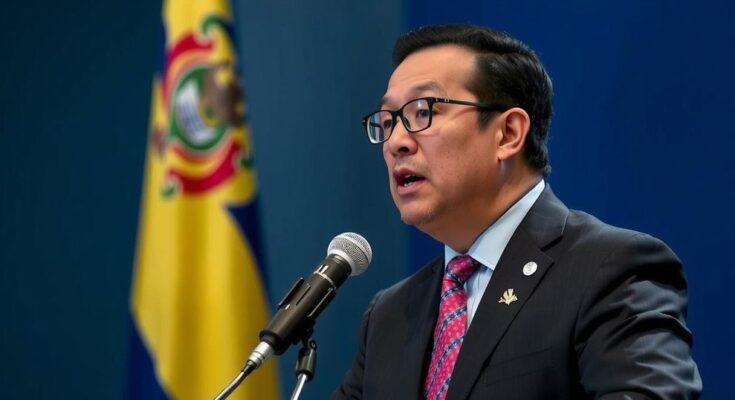Colombia’s finance chief, José Antonio Bonilla, has resigned, prompting market instability as dollar bonds fell and credit-default swaps increased. President Gustavo Petro defended Bonilla, stating the resignation was to protect him from political fallout, not an admission of guilt. Bonilla faces corruption allegations that complicate the government’s tax reform efforts.
The resignation of Colombia’s finance chief, José Antonio Bonilla, has stirred market anxieties, particularly as the nation faces contentious tax reform discussions. Following the announcement, Colombian dollar bonds saw a decline, negating earlier gains, while the five-year credit-default swaps increased by four basis points to reach 201 basis points. President Gustavo Petro publicly defended Bonilla, expressing his expectation for the resignation not due to guilt, but rather to protect Bonilla from political attacks linked to his loyalty to the government’s initiatives.
The political landscape in Colombia has been tumultuous, especially under President Gustavo Petro’s administration, which is pursuing significant tax reforms aimed at increasing state revenues. José Antonio Bonilla’s role as finance chief was pivotal during these sensitive negotiations. However, allegations of corruption against Bonilla have emerged, causing uncertainty and unrest in both the markets and the political arena, particularly as the government seeks to secure fiscal measures amid growing challenges.
In conclusion, the resignation of José Antonio Bonilla as Colombia’s finance chief presents a critical juncture for the nation, especially concerning its ongoing tax reforms. The market’s immediate reaction exhibits a lack of confidence, heightened by the allegations surrounding Bonilla and the political ramifications they entail. President Petro’s support underscores the complexities of navigating governance amidst integrity issues within the administration.
Original Source: news.bloombergtax.com




